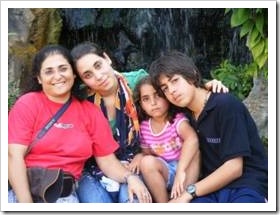
There are some things I wish I knew when I was younger. For example, that life is short and we had better make the best of it. Luckily for me, I realized this when I was 16. It was painful and scary at first but eventually very liberating. Life is what we have. There are no rehearsals, no practice tests, no rewinds or regrets. We can work with it but not against. And time is our most precious gift. It is the only real currency that exists. Some people make a good use of it and others spend it or waste it.
Since that time of realization, I have been searching for ways to get this message across others: life is short, live it!
Recently, my daughter Eden sent me this clip that demonstrate time as our most precious asset using jellybeans as a metaphor. It was beautiful and the message is clear and simple. Here it is. I hope you like it too.
Read Precious Jellybeans »















